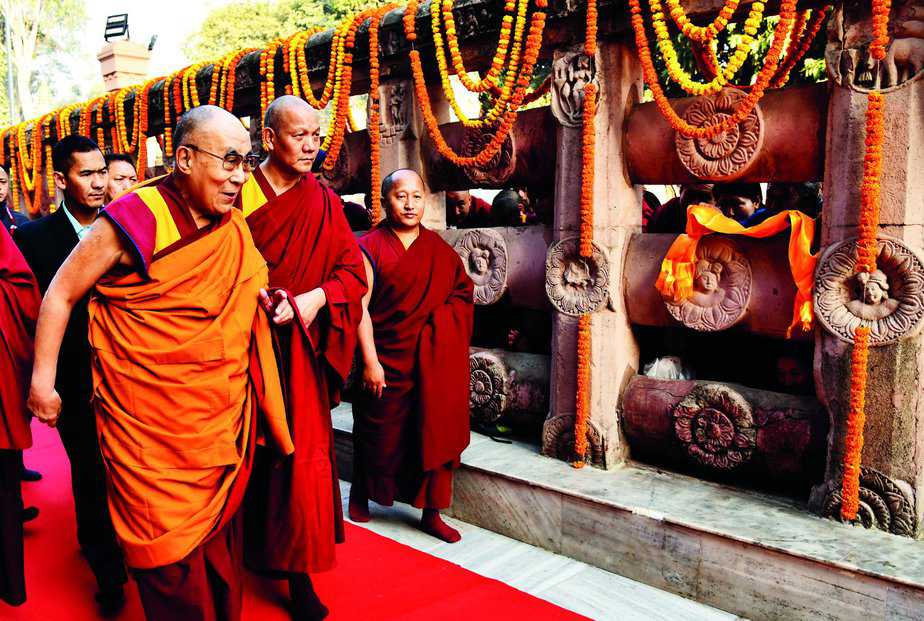
March 31 of this year marks 60 years since the Dalai Lama stepped into Indian territory, along with thousands of Tibetan refugees. While New Delhi was supposed to play host to kick off the year-long pan-India events after a note was circulated by the Indian government warning its officials against attending, the ‘Thank you India’ function was moved to Dharamshala.
Sonam Dagpo, the official spokesperson of the Central Tibetan Administration, tells the Patriot about the meaning of the symbolic gratitude, and the China factor.
Dangpo escaped to India in 1962, going on to study at Delhi University, Jamia Millia Islamia and then at Harvard University. He has held several posts, including Representative of the Dalai Lama in Australia, and a member of the Task Force for Negotiations with the People’s Republic of China from 2002 to 2008.
On March 31, you’re observing a “Thank you India” celebration. Why not one which highlights the government being in exile for 59 years?
The government of India and the people of India are very precious to us. They have supported us till date, and helped in the preservation of our culture, language and religion. Thus, we are observing ‘thank you India’, on the date His Holiness the Dalai Lama crossed over into Indian territory.
When we came to India, we had nothing. No soil, no earth. With the support of the government, we established the monasteries and set up schools, which preserved our identity.
What has the Tibetan government-in-exile achieved in all these years?
We were able to bring the Tibet issue to the international community and set up our offices in 12 countries. We have a parliamentary group for Tibet and all this started with the help of India, as it allowed a set-up of such an office here first. We have over 300 support groups, like Free Tibet, and its reach has been wide.
Furthermore, all those Tibetans born in India are not illiterate. We have been able to establish good schools, homes and also corporate societies, in lands given by the government. We have the Tibetan Institute of Higher Studies in Varanasi.
When we crossed over to India we were all refugees, with no livelihood. Our parents were put into road construction in the Himalayan areas. We were able to stand on our feet. Whatever we could achieve, we were able to share with our local Indian communities.
There are many young people who would perhaps want citizenship. Would you ever raise that with the Indian government?
We go by the law of the land the Indian Constitution, which only gives the provision for citizenship of those born between 1950 and 1987. But persons born after 1987 cannot apply.
[NOTE: Under the Constitution, persons born in India on or after January 26 1950 and prior to the commencement of the Citizenship (Amendment) Act of 1986 Act on July 1, 1987, is a citizen of India by birth. Those born after can be citizens only if either parent is a citizen of India at the time of the birth.]
At the same time, there aren’t many people who want to apply for Indian citizenship. We have all the rights, except ones that are rights for a citizen.
You were a member of the task force for negotiations with China. What did you achieve?
From our point of view, we’ve been able to understand China’s concerns — concerns that they have with their country’s stability and unity. But when we’re not seeking independence, but autonomy, they shouldn’t have a problem. The ball is in their court.
In 2008 we gave the Chinese authorities a comprehensive framework for the regional autonomy of the Tibetan people. We were able to present it to the Chinese, as well as highlight the aspirations of the people of Tibet. But the dialogue didn’t proceed further. Till now there’s no dialogue. We continue to seek a genuine autonomy through peaceful means.
Does your government feel a change of policy position by the Indian government?
Since we came to India, we’ve been in exile for the last 60 years. The Indian government’s policy has not changed in all those years. No matter which government comes into power in Delhi, things have not changed.
As far as relations with China go, we feel better ties between India and China will be good for peace in the world and especially in Asia. We also believe cordial relations will see the Tibet issue being solved. We’re happy about it and we welcome it.
On the principle of 'Sarvajan Hitaya, Sarvajan Sukhaya' -- Welfare for all, Happiness for all…
With hundreds reported missing in Delhi this year, this guide explains how families can use…
The case came to light after a 35-year-old woman from Panipat alleged that she had…
During the investigation, CCTV footage helped identify the suspects, according to Delhi Police
The launch took place during the inauguration of the Delhi Police Exhibition Hall at Connaught…
The 28-year-old factory owner was taken to Satyawadi Raja Harish Chandra Hospital in Delhi, while…